Abraham Socher
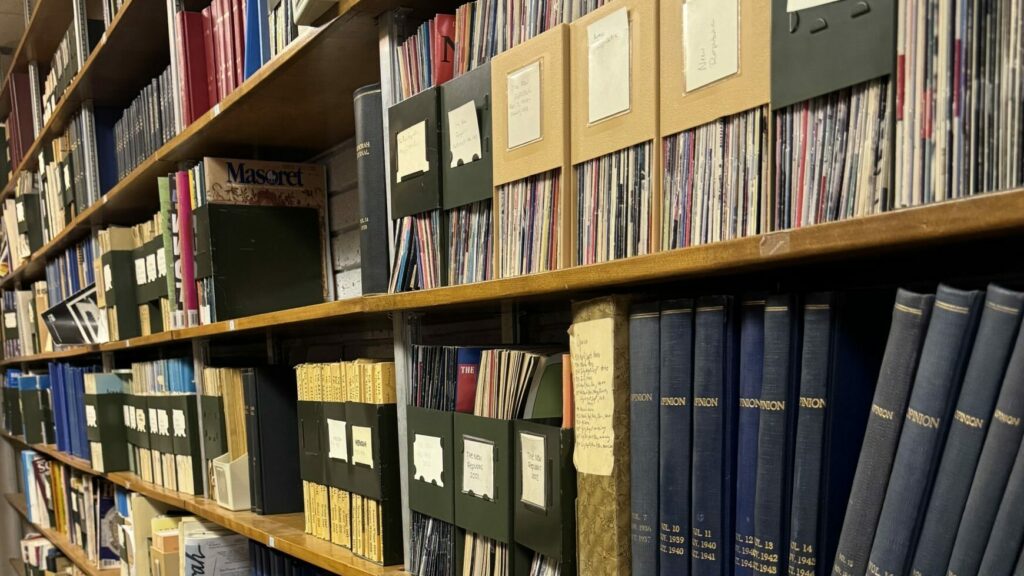
A Good Golus
“Well,” he said, “this is a good little golus you’ve got here.”
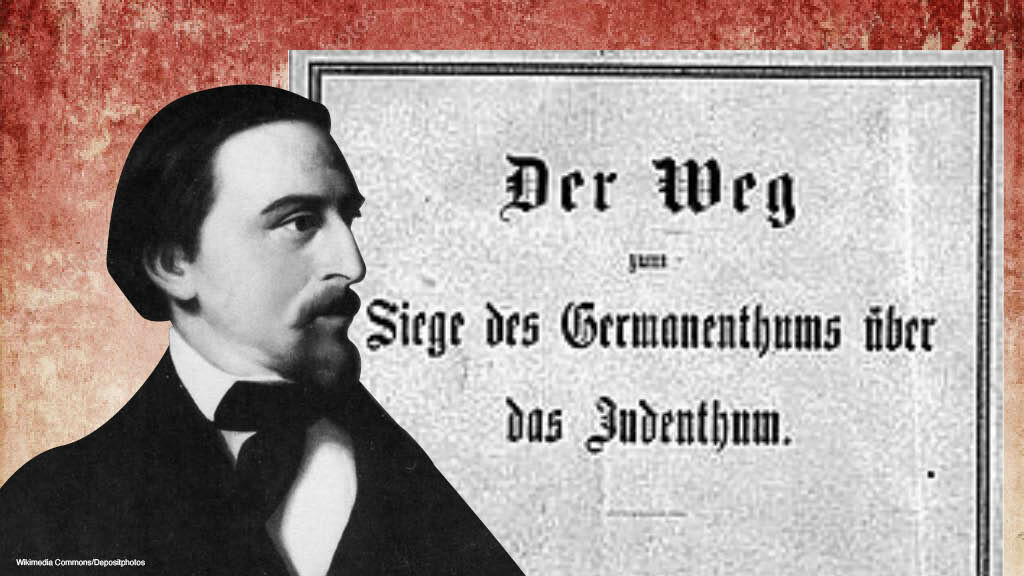
An Old-New Bigotry? A Response
Both Jonathan Karp’s and Reviel Netz’s essays are written in the shadow of October 8—not the day of the unthinkably brutal Hamas massacre in southern Israel, but the day after.

The World is Round
The heckler’s guide to beating an antisemite.

The Old-New JRB
As it happens, the 13th year in the life of the Jewish Review of Books marks an important turning point for the magazine . . .

The Allure of Dead Jews: A Conversation with Dara Horn
Prizewinning novelist Dara Horn has a new book of essays out, People Love Dead Jews: Reports from a Haunted Present. Horn joined JRB editor Abraham Socher for a conversation on October 14, and you can watch it now.
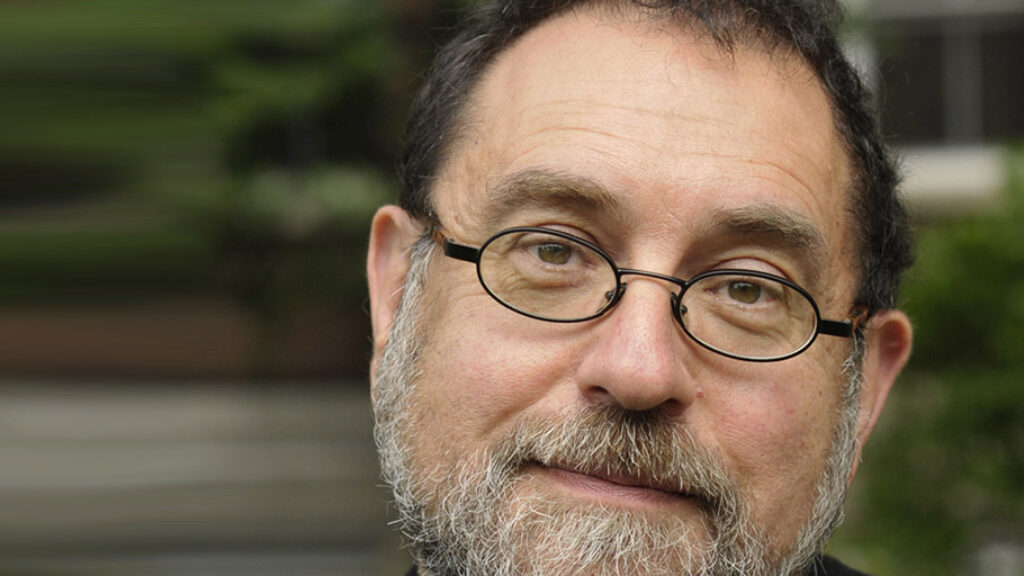
From Pogroms to Philip Roth
Stanford professor Steven J. Zipperstein and JRB editor Abraham Socher discuss Philip Roth’s life and work, the recent controversy over his authorized biography, and the biography of Roth he is working on now.

Take Your Son . . .
A new book about the interpretation of the most terrifying verses in the Hebrew Bible.

The Way We Live Now
One uncanny thing about this moment is that no one has yet put the experience we are all having—collectively yet separately, sometimes on Zoom—into articulate words.
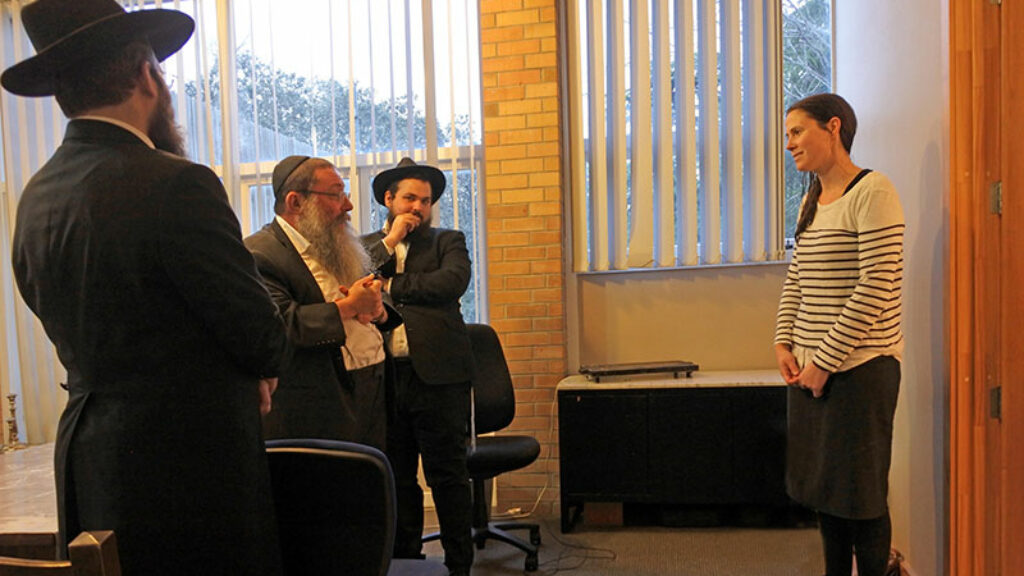
Conversion, “Catholic Israel,” and the Jewish Future: An Exchange
Tal Keinan argued for a radical transformation of Jewish life in God Is in the Crowd. Our editor wasn't convinced, which led to a pointed but cordial discussion.
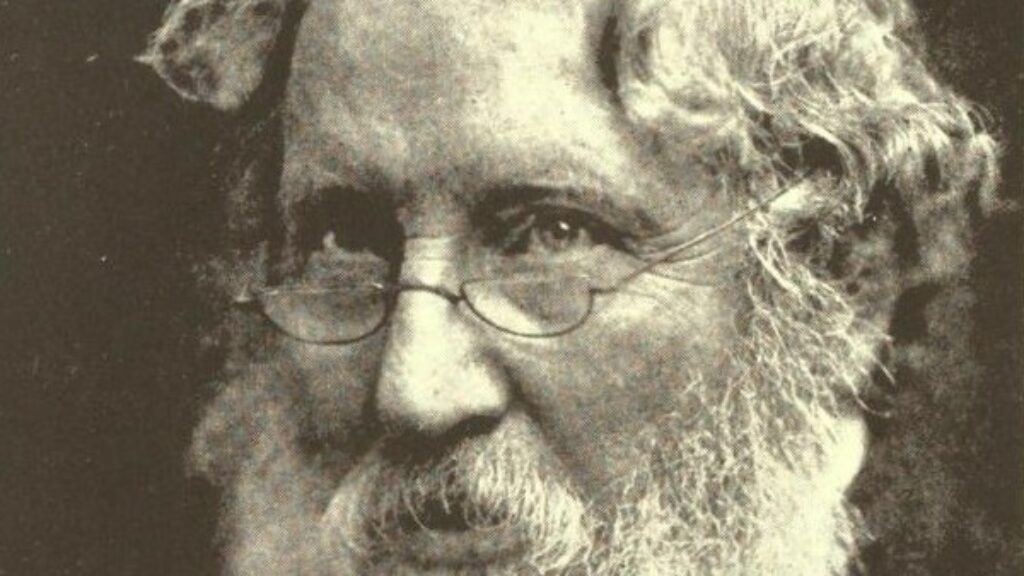
The Inheritance of Jacob: A Rejoinder
Abraham Socher closes out his exchange with Tal Keinan, author of God Is in the Crowd with a rejoinder.
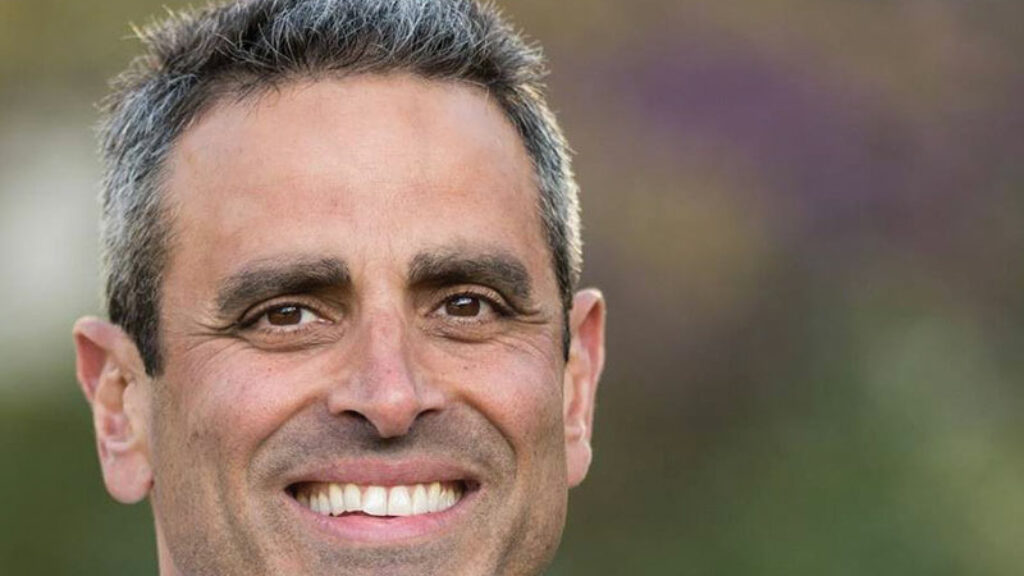
Exit, Loyalty … Crowdsource?
It is a bit of a surprise to open a big-think policy book on the fate of the Jewish people and read a Jason Bourne scene with a prep-school payoff, but Tal Keinan is entitled to it.

The Symbol Catcher
My friends and I took for granted that the connection between the cards and the players they represented wasn’t just arbitrary.
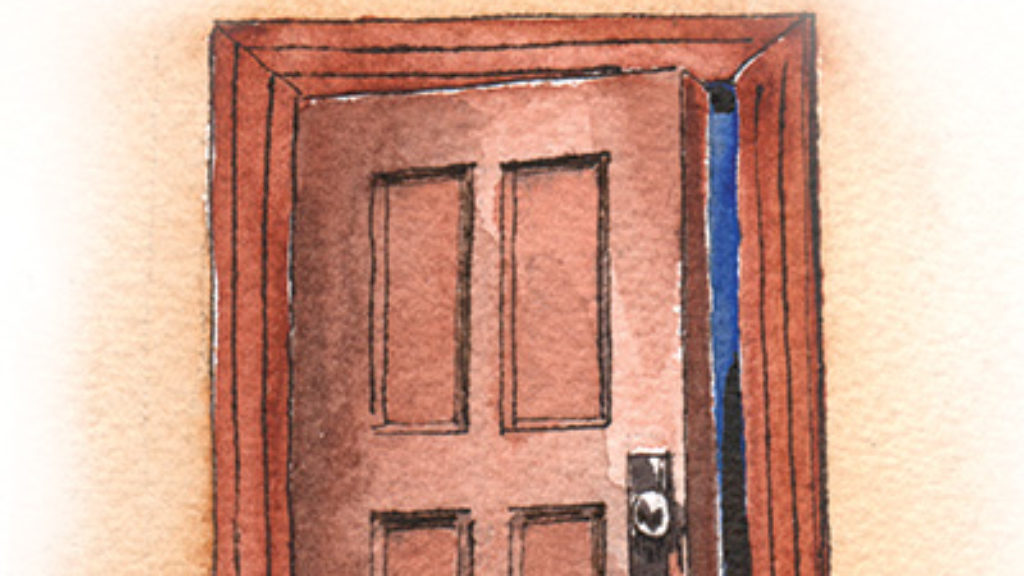
Books vs. Children
"Apparently it is very troubling for children to see their parents working, at least doing the kind of work that does not make itself visibly obvious."
Says Who?
Peter Berger listened to me patiently, and then he said, “You can come to see me, but”—and here he spoke with heavy emphasis—“it sounds like you have read my books . . . and I haven’t thought of anything new.”
Always Messy: A Rejoinder to Andrew N. Koss
It may be useful as a tool for moral self-improvement to see oneself as adjudicating between opposing forces within one’s breast or brain, though where precisely the adjudicator, or charioteer, resides is more than a moot point.
The Modern Crisis of Moral Thought: An Exchange
Abraham Socher's pre-Yom Kippur assessment of the possibility of true repentance led to a discussion on the mussarist's answer (or non-answer) on moral choices.
Is Repentance Possible?
And should we add a confession on Yom Kippur “for the sin of opening browser windows of distraction”? On Aristotle’s akrasia and Maimonides’s teshuvah.
Is Love Stronger than Death?
Near the outset of his book about mortality, Hillel Halkin has fallen into a grave, gazed at the remnants of a skull, succinctly described ancient Israelite burial practices, and vividly illustrated the ritual and material basis for that resonant biblical phrase in which the dead are “gathered to their ancestors.”
What They Talk About When They Talk About Golems
On golems and global conspiracy theories.

Marmorshers!
I left the conversation with the entirely erroneous, in fact libelous, impression that “Marmorsher” was Yiddish slang for horse thief.
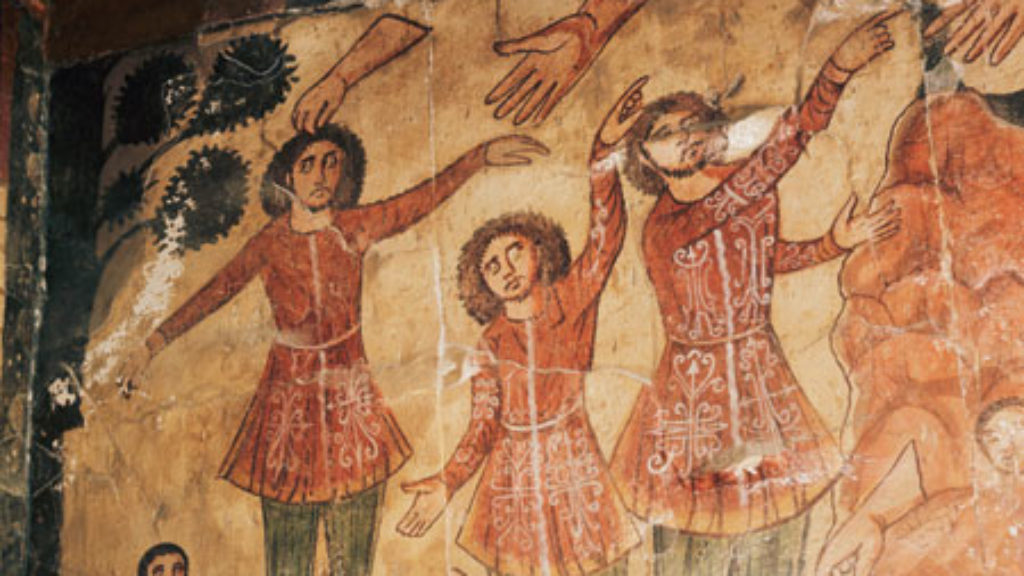
It’s Spring Again
A startling painting on the walls of the ancient synagogue at Dura Europos depicts some 2nd-century Jews who have, until recently, been dead and who look very surprised to have been reconstituted and revived.
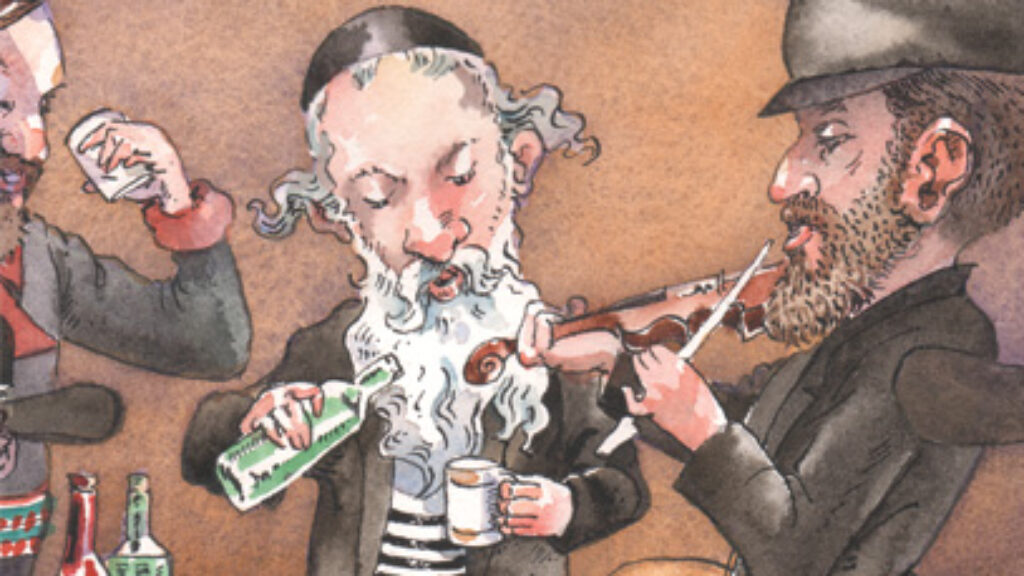
A Party in Boisk
The bodily joy a group of Boiskers took in fulfilling the commandment to study Torah is still surprising, and that may have something to do with the Torah they chose to study.

High Fives
The JRB editors celebrate our fifth anniversary with our top-five book lists.
Live Wire
Bellow’s not so innocent knock in The Adventures of Augie March is generally taken as the moment when Jews barged into American literature without apology.
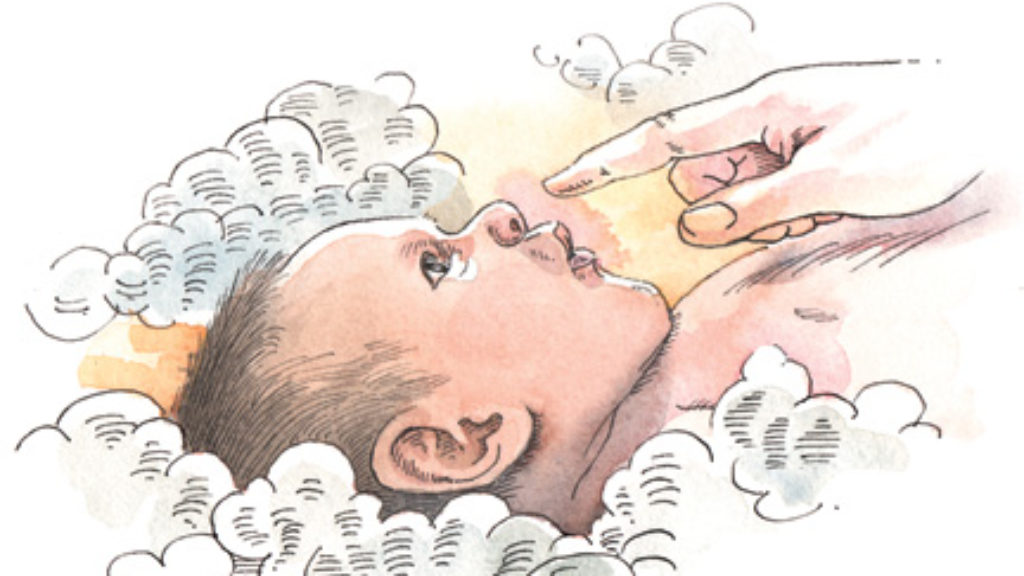
How the Baby Got Its Philtrum
The idea of learning as a recovery of what we once possessed is what makes Bogart’s bubbe mayse, and ours, so memorable: We can all touch that little hollow and feel the impress of forgotten knowledge.
A Conversation with Leon Wieseltier
Abraham Socher and Leon Wieseltier talk about the responsibilities of Jewish intellectuals, standing on the shoulders of (and tearing down) giants, and crying cookies.

Accounting for the Soul
Mussar Yoga makes for a surprising deli combo platter of the spirit, even in our easy-going mix-and-match America.
The Digression
A doctor walks into the examination room and tells his patient that the drugs aren’t working and there isn’t anything else to try . . .
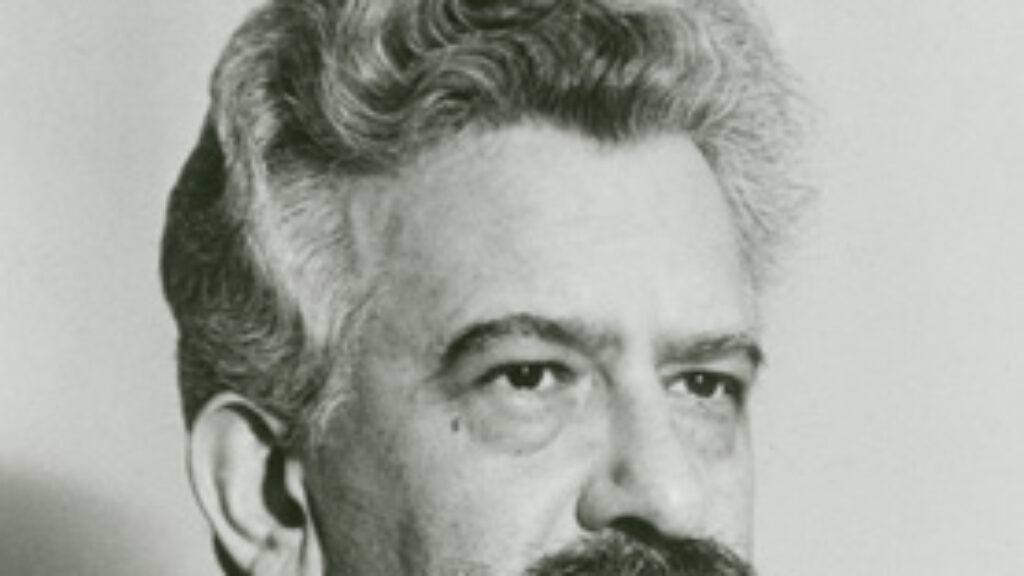
Heschel Transcendent
Abraham Joshua Heschel’s intellectual peers included Rabbi Joseph Soloveitchik, Reinhold Niebuhr, and the Lubavitcher Rebbe. His main thought, Shai Held argues, was of transcendence.
Salsa and Sociology
When I was a child, eight or nine, I evolved a theory about different kinds of Jews, based, more or less, on the hot sauce we kept on our table.
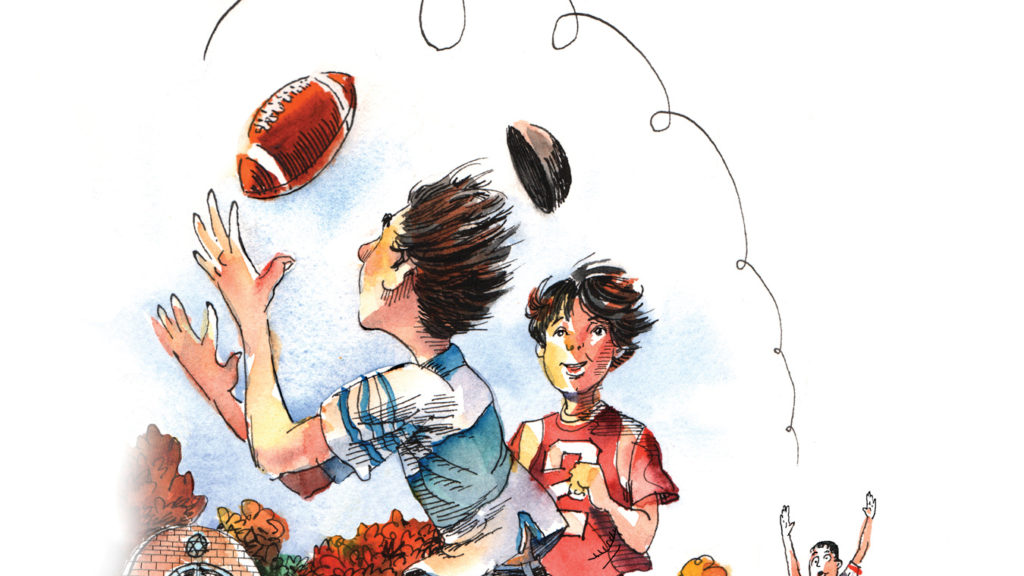
Hebrew School Days
“Of course, I had myself gone to Hebrew school—that’s what we always called it though very little Hebrew was ever learned—through most of elementary school. I’d walk the five blocks down Bancroft . . .”
Light Reading
Stoicism and the human heart.
Something Antigonus Said
When the Saducees misinterpreted Antigonus of Sokho, they lost eternity--at least that's what the Rabbis thought.
Quibbles
Harry Wolfson, Reinhold Niebuhr, and chutzpah.
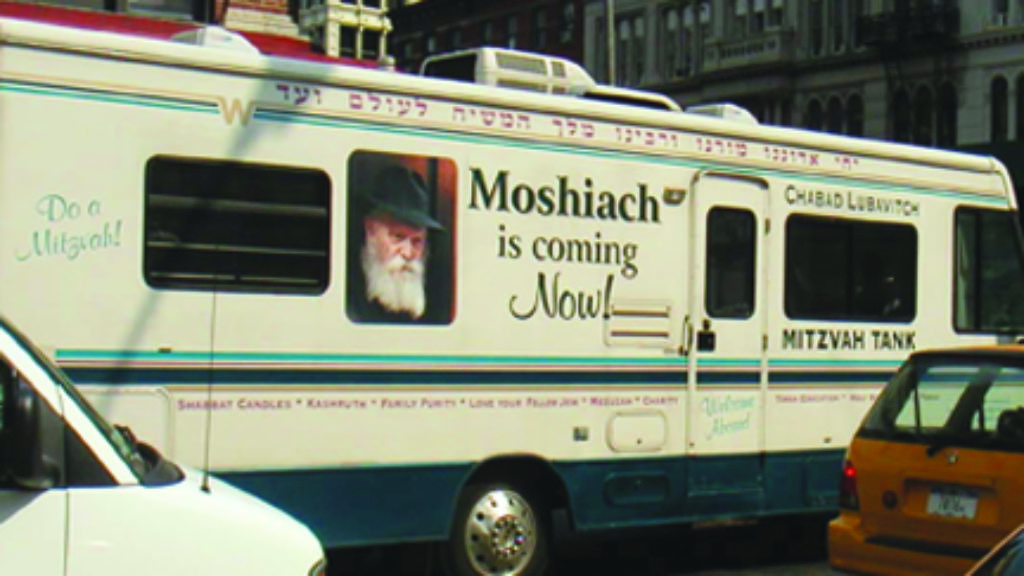
The Chabad Paradox
Despite its tiny numbers, the Hasidic group known as Chabad or Lubavitch has transformed the Jewish world. Not only the most successful contemporary Hasidic sect, it might be the most successful Jewish religious movement of the second half of the twentieth century. But two new books raise provocative questions about it.
Welcome to the Jewish Review of Books
Welcome to the first issue of the Jewish Review of Books.